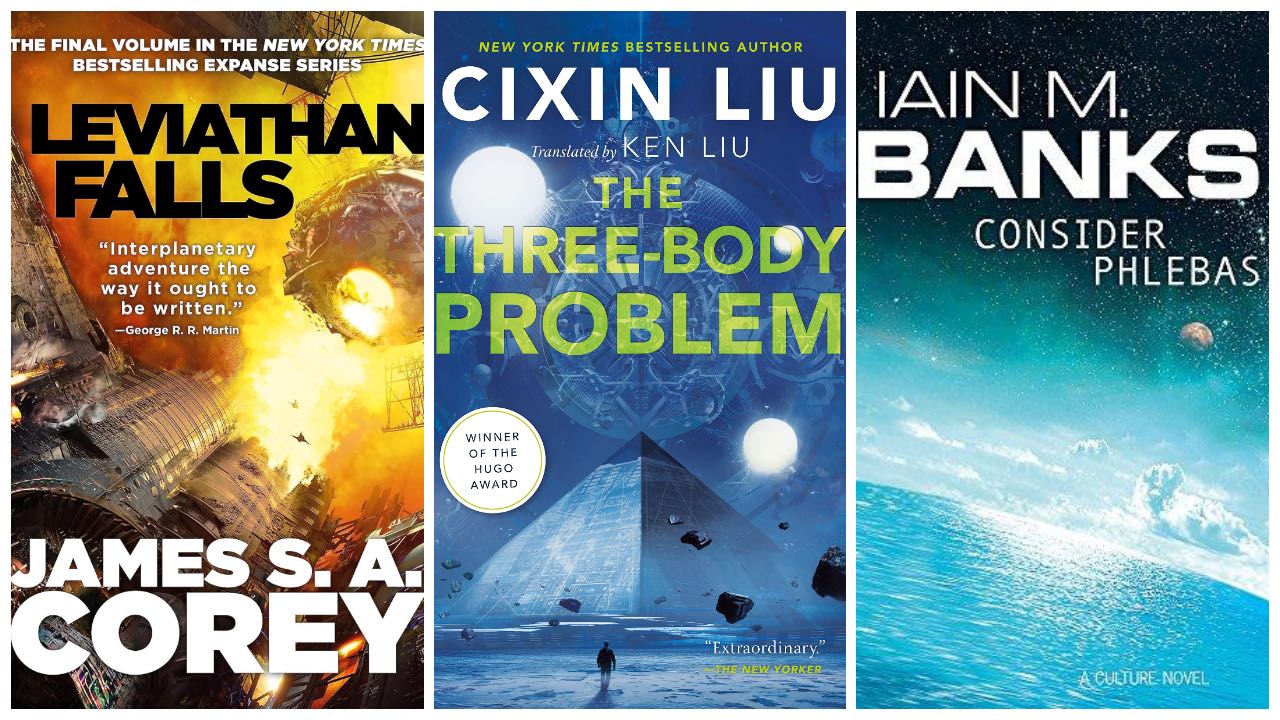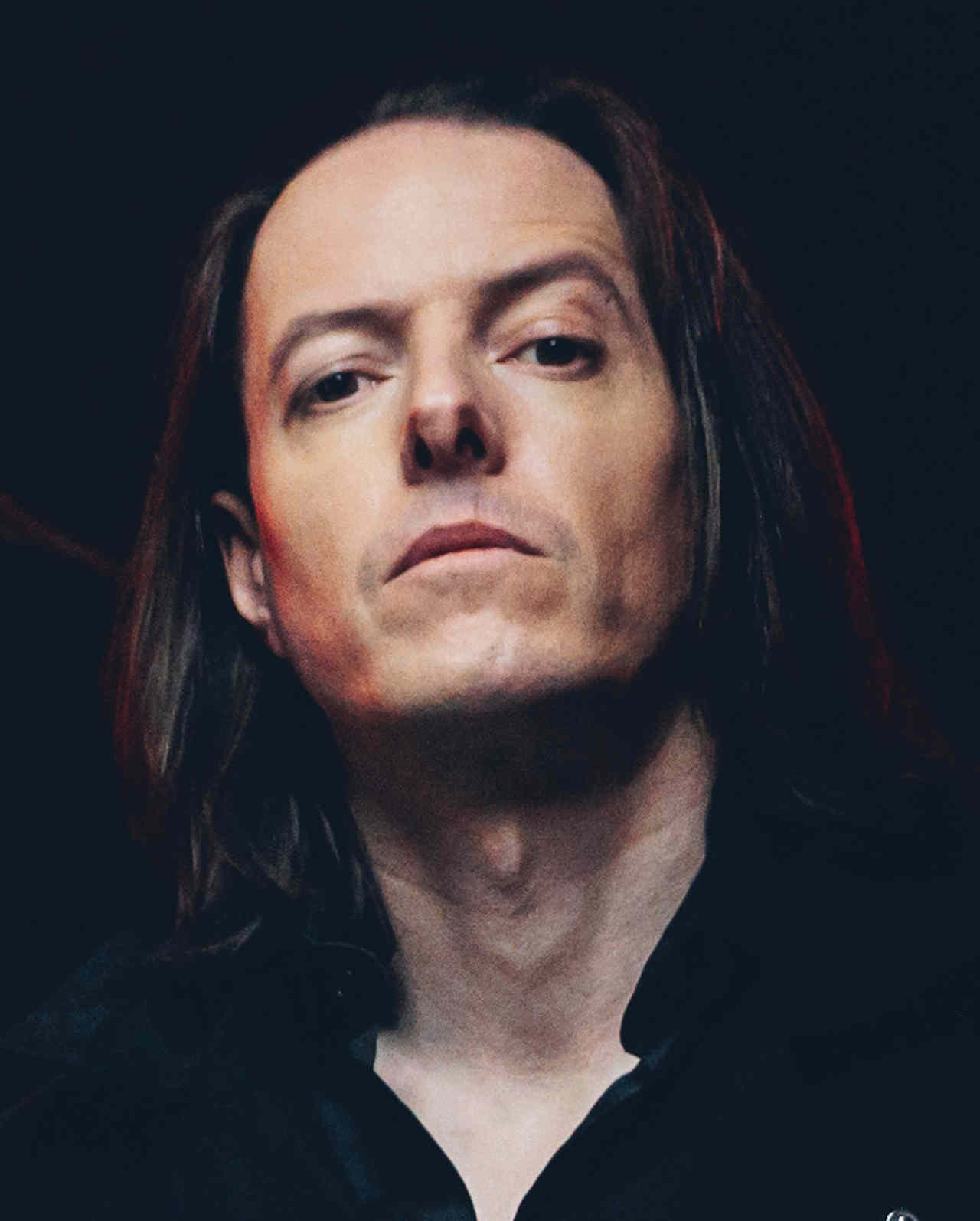6 mind-bending sci-fi novels every prog metal fan should read
As epic new sci-fi show 3 Body Problem hits Netflix, Tesseract bassist/avid sci-fi fan Amos Williams picks the novels that encapsulate the genre at its best


Epic, complex and sometimes challenging, prog metal and science fiction are perfect bedfellows. UK prog metal outfit Tesseract know this – they’ve dived deep into the sci-fi pool on their new album, War Of Being, a thought-provoking and occasionally head-spinning concept album centred around two characters, Ex and El, who have crash landed in a mysterious landscape known as The Strangeland. It’s based on an idea by bassist Amos Williams, who is in the process of turning it a novel. With epic sci-fi adaption 3 Body Problem – based on the acclaimed novel of the same name - about to hit Netflix, we asked Amos to recommend the science fiction books that every prog metal fan should read.
Sci-fi is about the small things. Many people are distracted by the huge space opera backdrops, galactic settings, cool tech (which essentially behaves like magic in most sci-fi, being based mostly upon fantasy to create easy ways for an author to escape having written themselves into a narrative corner), and wild future possibilities.
While these things are wonderful and exciting, they pale in comparison to the human stories presented within good sci-fi. Unbound by day-to-day environments and social structures, we can travel across the universe. And on that adventure, we can not only meet a multitude of interesting characters, but also put ourselves in situations never before experienced by humanity. And as such ask ourselves new questions. Through exploring the farthest reaches of human imagination, we find that in fact, we are our greatest journey.

Star Trek – Deep Space Nine (both the novels and TV series)
Essentially, the story of a single dad raising his son while learning to process the enormous trauma of the death of his wife during a battle to save the earth. All this while also being the commander of a space station in a war zone, and potentially being space Jesus. And that’s just episode one!
As a teenager I found the story of Benjamin Sisko to be both challenging to the world view and heartwarming. Space battles with lasers and aliens is one thing, but the relationship between Ben Sisko and his son is life affirming. This is what good sci-fi does. It cuts through the bullshit we tangle ourselves up with, and reminds us that we, and our connections, our sacrifices, our day to day lives; that is all that matters. Be it exploring themes of occupation and resistance, institutionalised racism, and the complicity of a society that believes themselves morally superior, Or, overtly exploring themes of gender non-binary realities decades before they became more mainstream. Star Trek is and always has been a universe to courageously express all of humanity. Especially so in DS9.
The Expanse Series – James SA Corey
Specifically, Leviathan Wakes, book one of the Expanse Series of novels. While the series as a whole is incredible, Leviathan Wakes is a masterpiece. Wow. What a wild ride! Intrigue. Action. Politics. Aliens. Love. Subterfuge and thriller vibes through the story of Miller. Adventure and the excitement of resistance through the story of Holden and the Rociante, The Expanse weaves together a huge cast of characters that are very real, even when presented with ideas that stretch the imagination to the extremes. Somehow squash buckling and a hard lesson in physics.
Written by James SA Corey – actually the duo of Daniel Abraham and Ty Franck, the latter being an assistant to George R. R. Martin of Game Of Thrones fame – it feels like you are reading a teleplay, but with the addition of successfully projecting the thoughts and emotions each character is experiencing. What starts out as the story of a detective trying to find the missing daughter of a billionaire, leads quickly into a complex world of conspiracy, rebellion, and funnily enough (albeit in a somewhat self-aware manner) yet another space Jesus. One of the cool elements of The Expanse is that it is an example of hard science. In that real world physics not only adds drama and consequences to the narrative, but they are also what gives the series such a rich, detailed feel.
Sign up below to get the latest from Metal Hammer, plus exclusive special offers, direct to your inbox!
The Three-Body Problem (book one of Remembrance Of Earth’s Past) – Cixin Liu
Why is this confusing and wild book so fascinating? Across the three novels we travel from 1960’s China through to a pocket universe beyond 4-dimensional space the end of time. Literally what the fuck? I’ve never been sure if this book is criticising the Chinese communist party, British/French colonisation of Asia, both, the unconscious nihilism of humanity in the face of looming environmental doom; or just a whirlwind tour through the imagination of its author. Perhaps the confusion is in part due to translating a very Chinese novel into English, as I always struggled with the lack of character emotions and just how much was left up to the reader to fill in the gaps.
But there is no denying that Cixin Liu, a now 60-year-old computer engineer from Beijing, took an element of Classical Mechanics and created an allegory that explores impossible situations. On paper it sounds tedious at best, in practice it’s the wildest ride in literature - just the very description of the main antagonists, the Trisolarians, defies all previous troupes set in fiction, let alone sci-fi. If The Expanse is a great example of hard science, The Three-Body Problem is a great example of REALLY hard science. And REALLY pushing fiction to a new level.
The Culture Series – Iain M. Banks
Murky. Morally ambiguous. Fabulous. Featuring whole civilisations that have ‘sublimed’ beyond corporeal form billions of years ago, a virtual Heaven/Hell, genetically modified mercenaries on secret missions who unwittingly are bringing forth the destruction of whole quadrants a galaxy, three legged aliens, gas aliens, and post humans who are functionally immortal. Iain M. Banks paints a universe where we explore the questions of boredom through long life.
Yes, you can change gender at whim, or for fun, experience a violent death, but then be transferred to a new body when you die. All this within a society run by multidimensional super computers, or ships as they are known, each with distinct personalities, as broad ranged and anarchic as the humans that inhabit them. It has been reported that The Culture series has been put into development for adapting to TV many times. But, the scale and scope, and truly wonderfully messy universe it portrays has always made it difficult. We now have the technology to successfully recreate the vision of Iain M. Banks, but do we have the imagination?
Ancillary Justice (Imperial Radch book one) - Ann Leckie
Another incredible example of the fight against oppression (clearly my kink), and the power of one person against a seemingly omniscient being/Empire. Exploring ideas of what happens when a single being’s consciousness (an AI that rules the Radch Imperium) is distributed through the use of ancillaries (avatars) across a universe bound by the physics of that universe, and the separation that entails. Autonomous, these Ancillaries end up in conflict, and although they are all one being in essence, the story depicts the galactic consequences of a being at war with itself from both the perspective of the humans of the Radch, and the AIs that run it.
Without taking anything away from the fantastic adventure and characters that Ann Leckie creates within her Imperial Radch series, I feel that these novels exist almost within Iain M. Bank’s Culture. That really does Ann a disservice though, and if anything as someone who had already devoured all that The Culture had to offer, I found it almost heightened my enjoyment of Ancillary Justice. And the reach that Ann strives for with her novels often goes way beyond that of the highly influential novels by Banks.
1984 – George Orwell
A novel whose ideas and themes have been so influential upon generations of writers that they have become integral elements of modern interpretations of society. Thought Police, The Ministry of Truth, hijacking of media for propaganda and application of state control over the people, Big Brother, doublethink, newspeak. All terms in common circulation that many don’t know the source. A harrowing dystopian novel about the struggle of Winston Smith against the totalitarian Party. The seed for many modern tropes and indeed cliches, 1984 takes Orwell’s experiences fighting in the Spanish Resistance, living in London as a poor journalist, and his fears of what Europe and America really were/would become post world war, and paints the quintessential dystopian story.
Controlled by an authoritarian and fascist regime, Air Strip One (formally Great Britain) is a miserable nightmare, where every word is scrutinised, every thought manipulated, every text constantly updated to reflect what The Party says is fact – to the point that truth is what they say it is. Or, ‘2+2 = 5’. Brutal and somewhat clichéd in contemporary terms, but the progenitor of many modern premises
It’s Included in this list as the imagination that Orwell applied to how The Party inflicted its will on the people involves an element at the core of sci-fi, which is the creation of believable tools and technology, that not only explain, but also enhance the details of the author’s creation. A thoroughly miserable read, yet powerful, and mind expanding.
Tesseract’s new album, War Of Being, is out now
